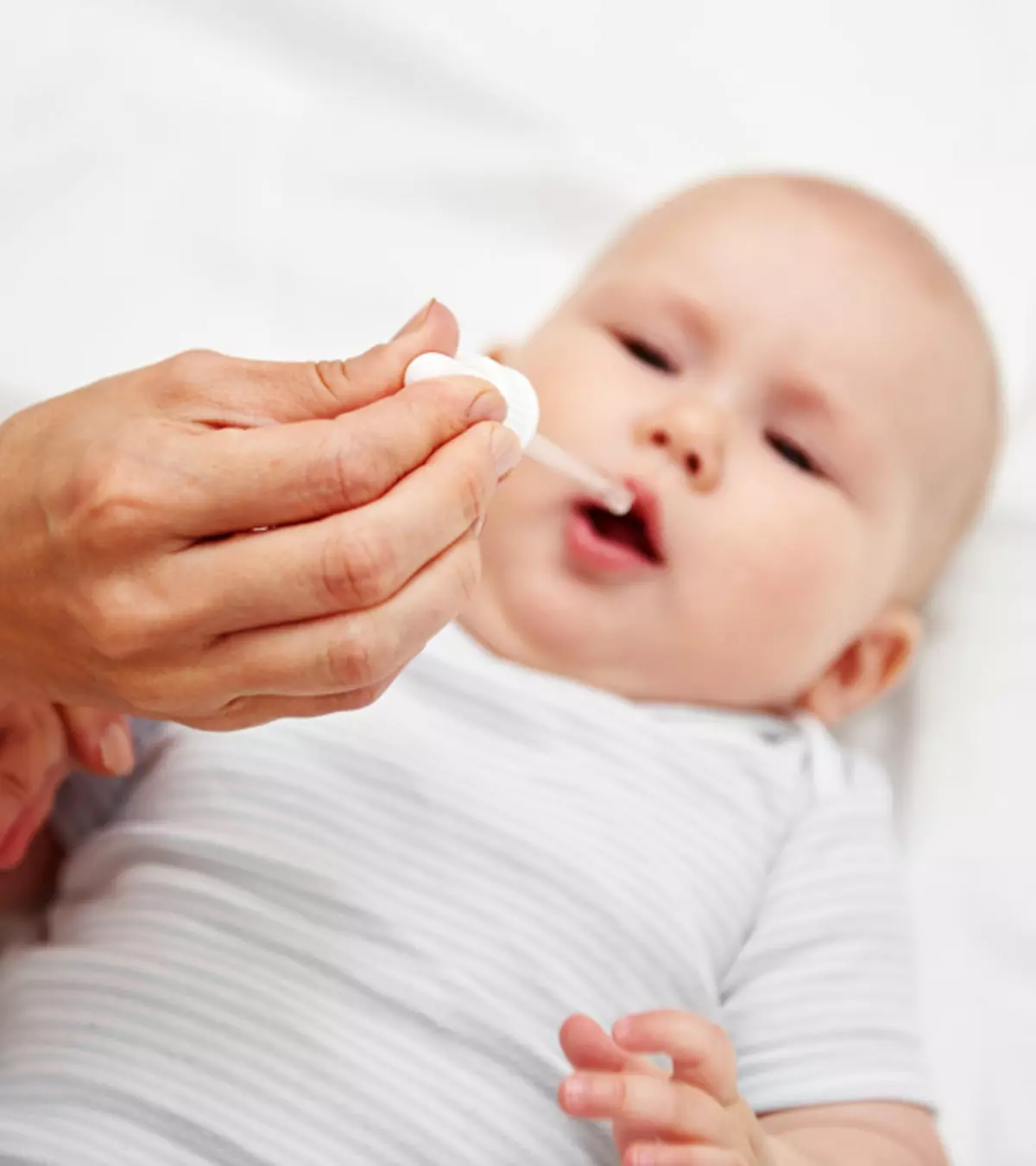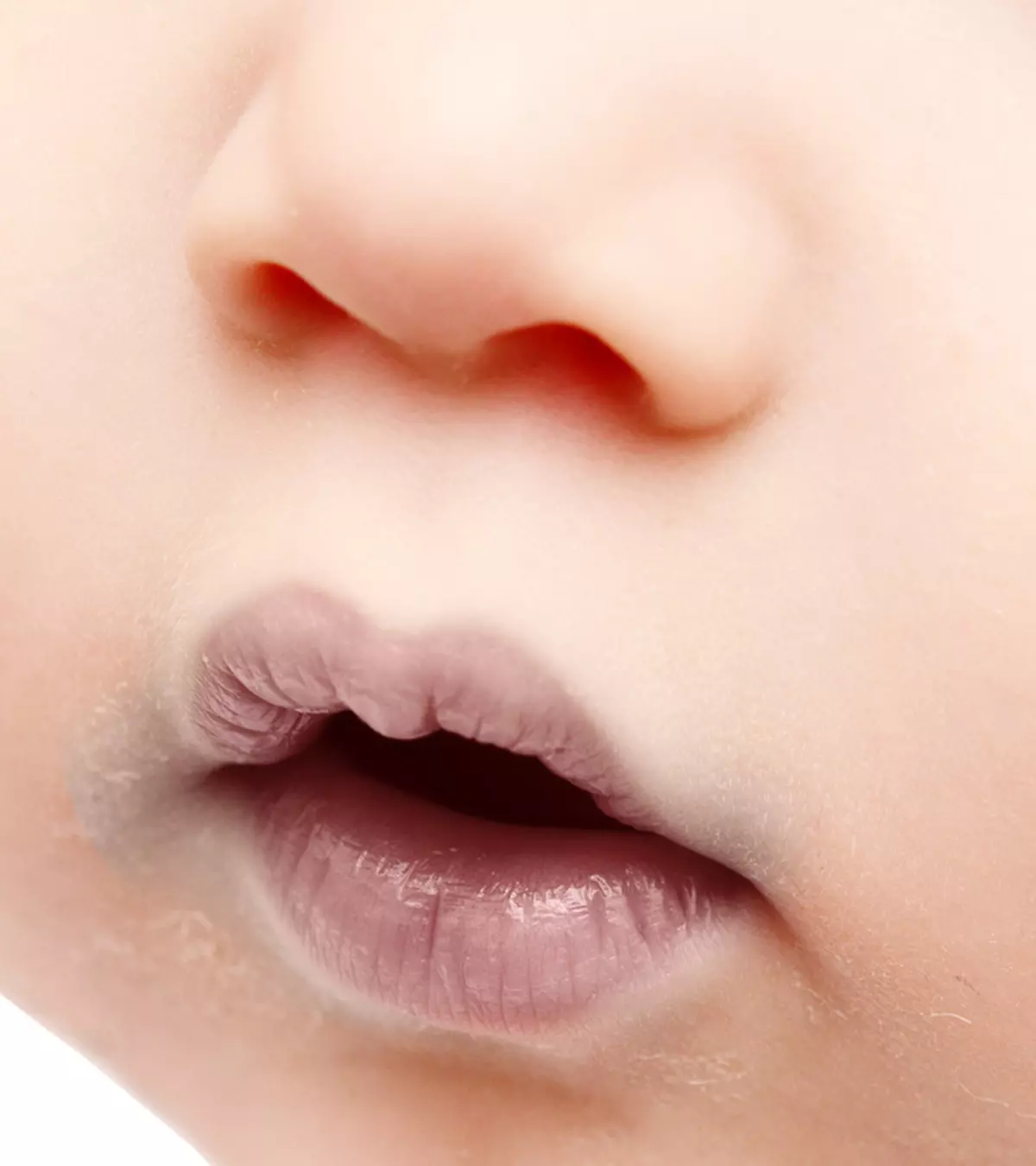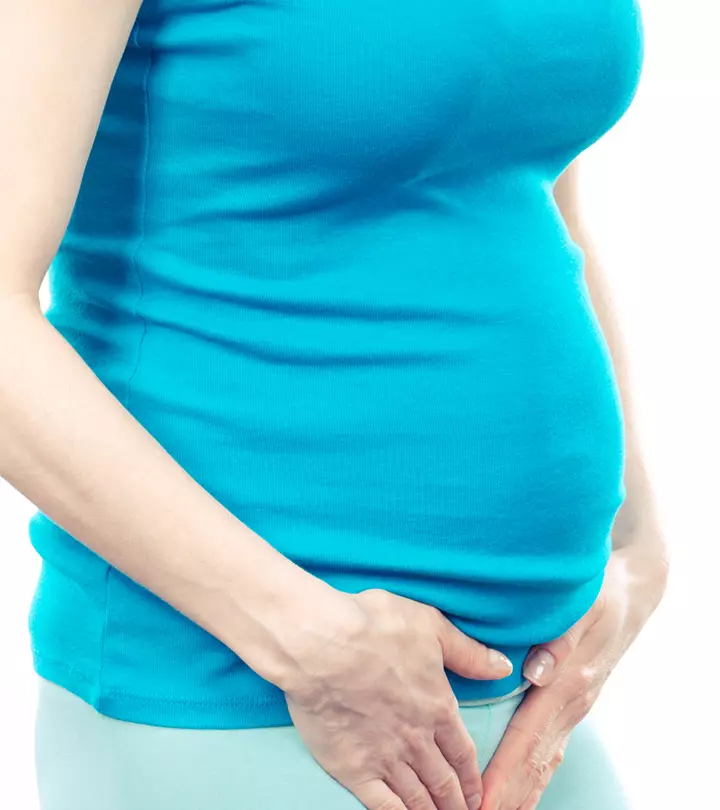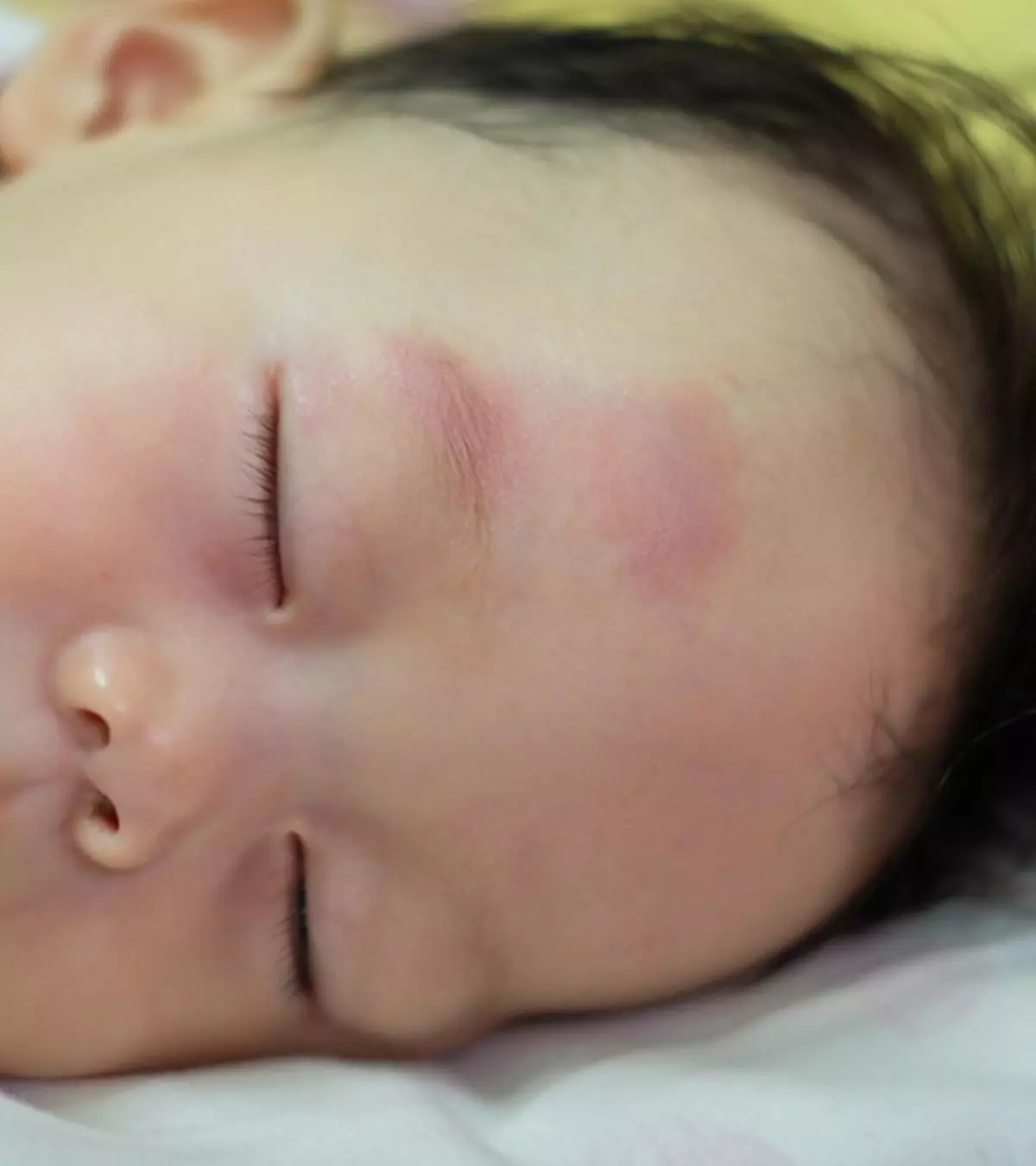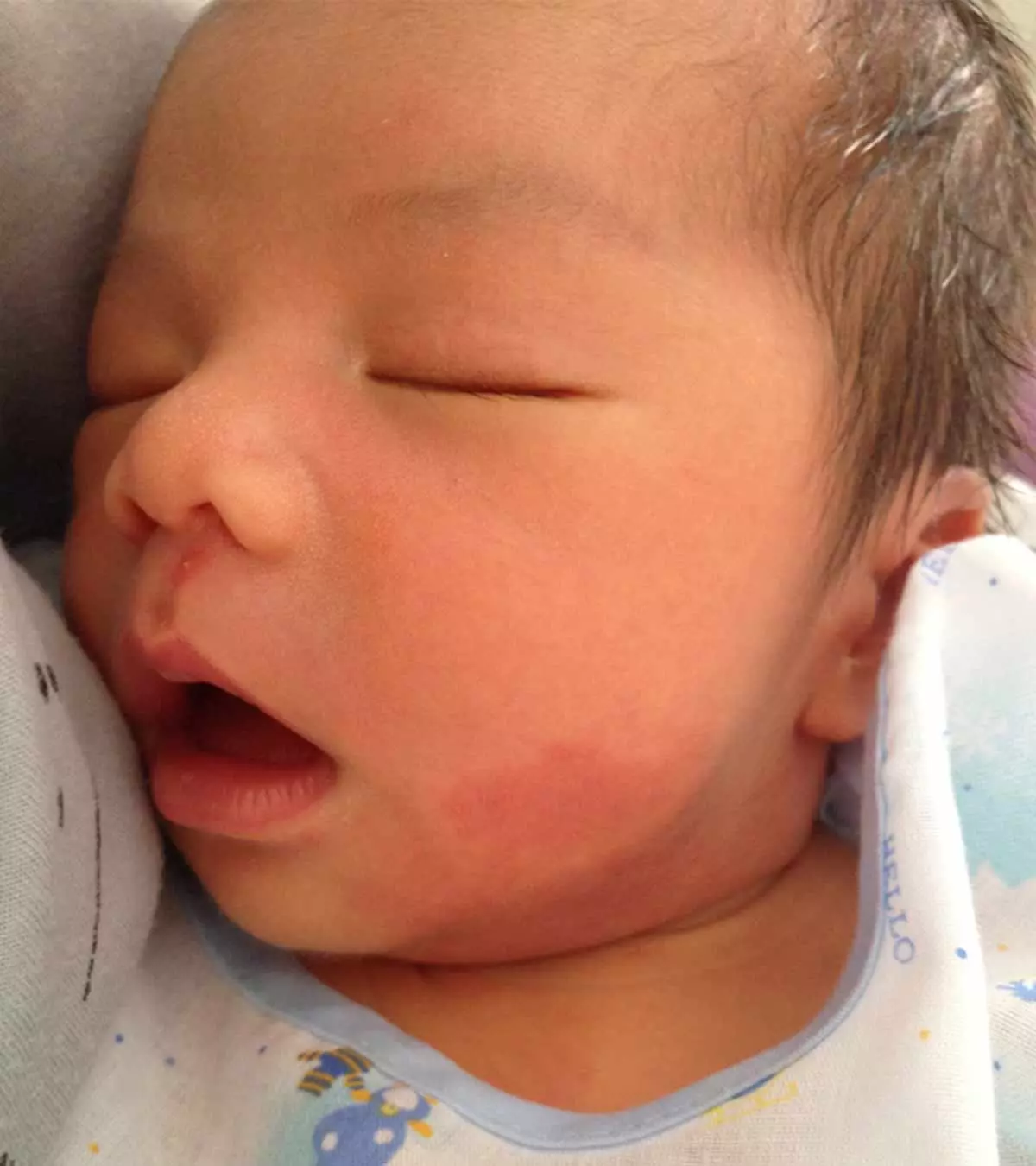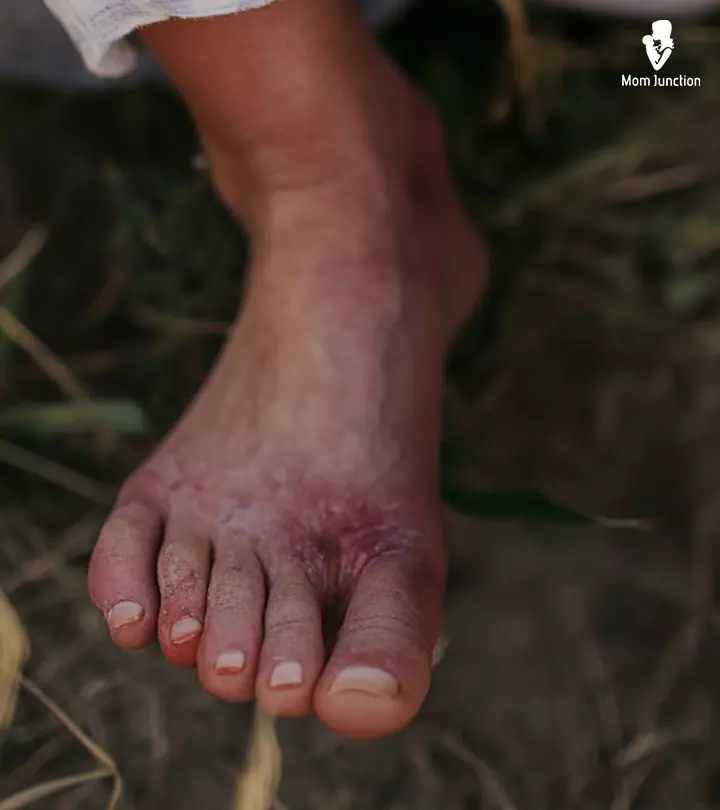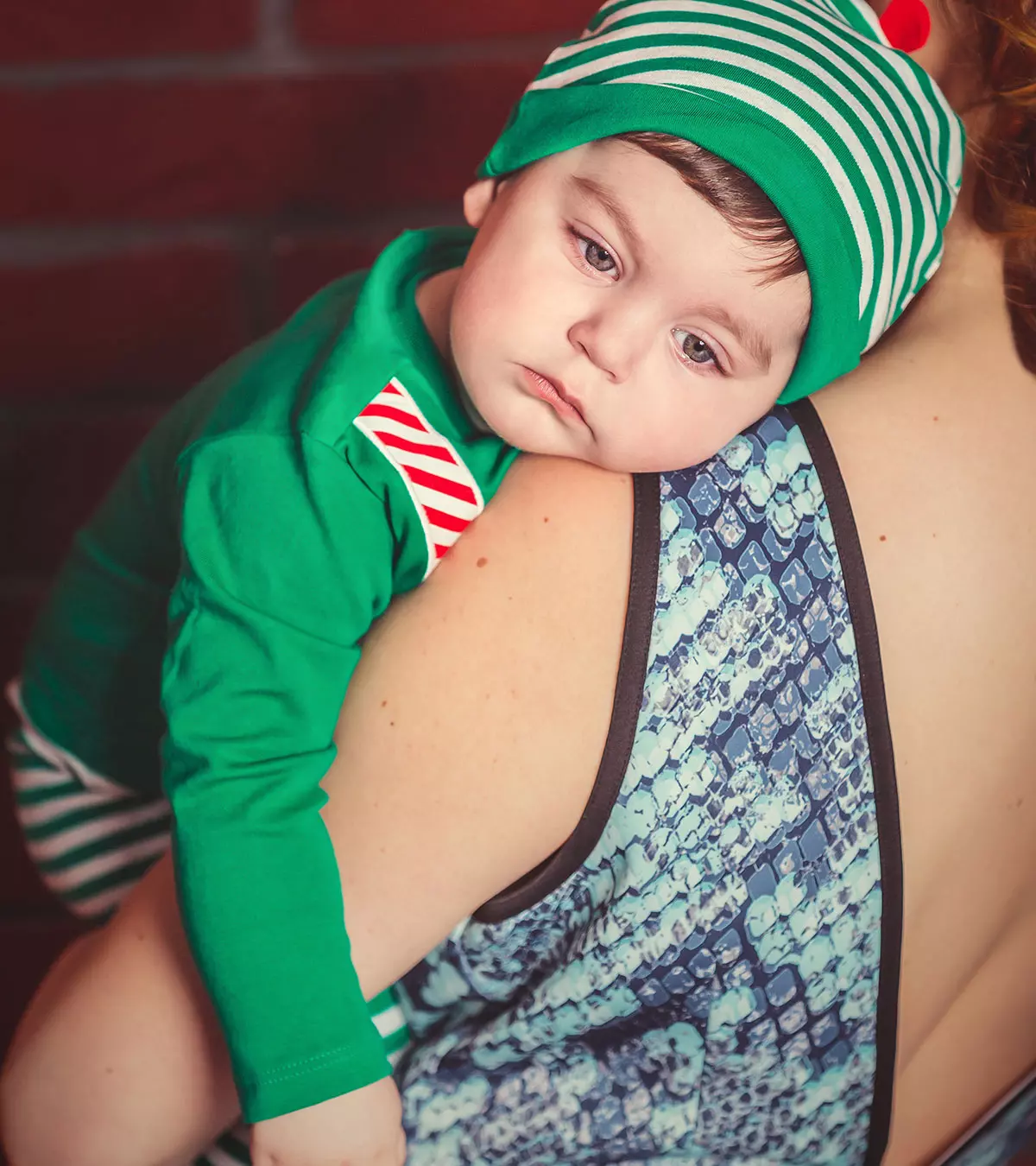
Image: Shutterstock
Asperger’s syndrome in babies is a neurobiological disorder that may lead to difficulty communicating and adjusting to changes in routines. While it was identified as an individual developmental disorder initially, many psychiatric health bodies, including the American Psychiatric Association (APA), now consider Asperger’s syndrome as a part of the autism spectrum disorder (ASD) (1). Early diagnosis can help the psychiatrists establish a relevant treatment plan that can help improve the child’s academics and social skills training (2). In addition, the sooner the treatment begins, the better the outcomes and prognosis are. With persistent treatment, babies with Asperger’s can lead a near-normal life. Read this post to know more about the signs, causes, diagnosis, and management of Asperger’s syndrome in babies.

Key Pointers
- Asperger’s syndrome, a part of Autism Spectrum Disorder (ASD), is a neurobiological disorder affecting a baby’s routine and communication.
- Babies suffering from Asperger’s syndrome do not interact with others, make no eye contact, dislike attention, prefer to be alone, and have extreme reactions to objects and events.
- Symptoms of Asperger’s syndrome are milder when compared to ASD and affect a child’s behavior, senses, and social skills.
- Asperger’s syndrome is thought to be caused by a combination of faulty genes, abnormalities in chromosomes, and due to side effects of medication used during pregnancy by the mother.
- Asperger’s syndrome can be diagnosed as early as 18 months, but a definitive diagnosis is made when the child is around 7.
- Early diagnosis is crucial for establishing effective treatment and improving an infant’s outcomes.
What Are The Signs Of Asperger’s Syndrome In Babies?

A child with Asperger’s syndrome is likely to display the following signs (3) (14).
- No interaction with others
- No eye contact
- They might appear indifferent to others
- Prefer to be alone
- Dislike attention
- Extreme reactions to objects, activity, and events
- Repetitive behaviors such as rocking
- Fixating on objects with eyes
- Unusual patterns of speech with variations in sounds
- Limited facial expressions
- Difficulty interpreting non-verbal cues or emotions
- Obsession with specific topics
- Strong ability to memorize preferred information
- Unsteady or uncoordinated movements
- Problems in fine motor skills such as handwriting
- Frequent tantrums and violent outbursts
- Behaviors that may border on self-injuriousness
- Hypersensitiveity to textures, sounds, and lights
The symptoms of Asperger’s syndrome become more profound in the second year of life. Do note that not all babies who display these signs have Asperger’s syndrome. Also, at the same time, babies with Asperger’s syndrome may not display all of the above symptoms. Therefore, it is best to consult a doctor if you suspect your baby might have Asperger’s syndrome.
Becca, a mother to four children, one of whom has been officially diagnosed with Asperger’s syndrome, candidly discusses how her second son, Thomas, is also showing signs of Asperger’s. She shares, “There is a huge sensory issue. Thomas cannot handle extreme sounds like high-pitched noises, children screaming, and a lot of commotion in a room, and he has always held his ears in pain whenever I vacuum. As far as textures go, he freaks out by the feel of half of his clothes, always complaining that they are not soft enough or scratchy.
As far as social things go, I’ve never really noticed that Thomas has problems talking to other kids or if he misunderstands social cues … He has an extreme problem of not being able to look people in the eye … he seems to have this a little too long delay in his responses or you have to direct him to answer the teacher when she asks him a question (i)”
How Is Asperger’s Syndrome Different From Autism?

The main distinguishing feature is that the symptoms of Asperger’s syndrome are mild when compared to autism. A child with AS is also likely to have better language and cognitive skills unlike the cognitive rigidity and speech delay observed in autism.
The primary signs are similar but with less intensity among those with AS. The possible areas of development commonly affected by Asperger’s syndrome and autism are (3):
- Social skills
- The senses – hearing, taste, touch, sight, smell
- Play and imagination
- Behavior
Depending on the consistency and pattern exhibited by the child, problems with the features mentioned above might indicate Asperger’s syndrome or autism spectrum disorder in children.
What Causes Asperger’s Syndrome?

The exact cause of Asperger’s syndrome is unknown. The following factors increase the risk of developing the syndrome (4).
- The combination of faulty genes is often considered a primary reason. It indicates that Asperger’s syndrome can run in families.
- Abnormalities in chromosomes during the formation of the fetus.
- Using certain medications, such as thalidomide, to treat anxiety in a mother during pregnancy can increase the risk of genetic anomalies in the fetus, which might lead to Asperger’s syndrome.
- Babies born to older parents might be at a higher risk.
 Point to consider
Point to considerRemember, AS does not result from poor parenting or bad upbringing of the baby. It is a disorder that occurs due to innate abnormalities in the baby’s brain.
How Common Is Asperger’s Syndrome In Babies?
The exact prevalence of AS is not known since the condition is counted under the common range of ASD (5). According to 2014 data from US Centers for Disease Control and Prevention, about one in 59 children in the US were diagnosed with autism spectrum disorders (6). The figure had increased since the year 2000 when one in 150 babies had ASD. These statistics include Asperger’s syndrome as part of ASD.
At What Age Is Asperger’s Syndrome Diagnosed?
Doctors can diagnose Asperger’s syndrome in babies as young as 18 months (4). Since AS is on the milder end of ASD, an affirmative diagnosis might be made around the age of seven years (7).
 Quick fact
Quick factDiagnosis Of Asperger’s Syndrome

The primary diagnosis of Asperger’s syndrome is based on the behavioral peculiarities of the child. The pediatrician will assess your baby, and if necessary, he or she might be referred to a developmental pediatrician or a psychologist. Since AS is considered under ASD, the criteria of diagnosis are the same for both.
The American Psychiatric Association’s Diagnostic and Statistical Manual (Fifth Edition) provides standardized criteria to help diagnose ASD. The following are the main diagnostic criteria for ASD in babies (8).
- Interaction and social communication difficulties, such as insufficiency of:
- Social and emotional reciprocity exhibited by the baby’s inability to react emotionally to an interaction by the parent or caretaker, etc.
- Nonverbal communication, such as facial expressions, eye contact, etc.
- Establishing, sustaining, and understanding relationships; not showing any interest in playing with other babies of similar age groups or with parents or caretakers.
- Restricted and monotonous patterns of behavior, interests, or activities as demonstrated by at least the two of the following:
- Repeated motor movements like arranging the toys in a line or flipping the objects around them, etc. or poor motor planning.
- Insistence on having no changes to anything around them, or getting severely upset or developing anxiety at any change.
- Overreaction or underreaction to the sensory aspects, such as no or little response to pain or extreme temperatures, smelling things over and over, touching things again and again, etc.
- The symptoms must be present in the early growing and developing phase of the baby’s life.
- Symptoms should cause significant issues in the important areas of current functioning, such as social interactions leading to social isolation.
- These disturbances are not always related to intellectual disability. Although intellectual disability and ASD may occur together, to confirm ASD in babies, their social communication skills should be below the expected usual levels.
Some babies take a little longer than others to achieve usual milestones. It does not mean that they are suffering from AS or ASD. Contact your baby’s doctor to help you evaluate your baby’s condition.
Can Asperger’s Syndrome Be Treated?

There is no proven single treatment for Asperger’s syndrome, but a combination of therapies, educational support, and services tailored to the child’s specific needs can greatly enhance their progress. The core symptoms of AS are poor communication skills and executive function, obsessive interests and routines, and physical clumsiness. The focus of the treatment is to work on these three deficient areas in a baby’s upbringing in an atypical development.
An effective treatment plan includes the following measures (9)(15).
- Building the baby’s interest
- Making a predictable schedule
- Teaching day-to-day tasks by forming a series of simple steps
- Engaging the attention in well-structured activities for autistic kids
- Providing regular reinforcement of behavior
- Emotional regulation and self-control training
- Special education and academic adaptation skills
- Occupational and vocational training
- Family and relationship counselling
- Medications for associated conditions like ADHD, depression, and psychosis
- Developing social and communication skills
 Point to consider
Point to considerIt is proven that early diagnosis and treatment of Asperger’s leads to better outcomes. Medications are provided if the baby has any coexisting medical conditions. The treatment plan mainly focuses on social skill development and cognitive-behavioral development so that the baby with AS can lead a normal and independent life as he/she grows older. Additionally, with the help of special education that focuses on improving delayed development, the quality of life may be made better.
Frequently Asked Questions
1. Can Asperger’s syndrome go undiagnosed?
Yes. Asperger’s syndrome is a mild form of autism and often does not cause any changes in cognitive flexibility. Therefore, it could go undiagnosed. However, with the latest advancements in medical practice, it is easier to diagnose Asperger’s syndrome.
2. Does Asperger’s syndrome run in families?
A strong genetic predisposition is seen in Asperger’s syndrome, and it could mean that it runs in families (10).
3. Do babies with Asperger’s smile?
Asperger’s syndrome is now classified as a part of Autism Spectrum Disorder (5). Babies falling in the Autism Spectrum may have difficulty making eye contact and may not show many facial expressions, such as smiling (11).
4. What is similar to Asperger’s syndrome?
Asperger syndrome is a condition that can be easily confused with other conditions such as Rett disorder, schizoid personality disorder, obsessive-compulsive disorder, depression, and semantic-pragmatic disorder, which can sometimes lead to misdiagnosis (12).
5. What is the difference between Asperger’s syndrome and autism spectrum disorder?
Asperger’s was considered a variant of high-functioning autism. However, now ‘Asperger’s syndrome’ is a part of the broader ASD category, which includes various autism-related conditions. Essentially, Asperger’s is now regarded as a type of autism.
Despite falling under the ASD umbrella, individuals with Asperger’s or a related autism spectrum condition may exhibit distinct signs. A significant difference lies in the age of diagnosis. Autism is frequently identified in toddlers due to early language difficulties. On the other hand, those with Asperger’s may receive a diagnosis later, perhaps during elementary school or even adulthood. Some might not undergo diagnosis until much later in their adult lives (13).
Asperger’s syndrome in babies is a neurodevelopmental disorder that may be confused with ASD. However, it is only a part of ASD and considerably less serious in terms of its manifestation. Asperger’s syndrome occurs mostly due to genetic factors and can be managed with timely treatment and therapies. Remember to give the utmost love and understanding to children with the syndrome. You need to be aware of the symptoms of Asperger’s syndrome in babies and accordingly consult the doctor to provide them with an efficient life.
Infographic: Diagnostic Criteria For Asperger’s Syndrome
Although Asperger’s syndrome is usually seen in children and adolescents and is relatively rare in infants. However, if your doctor notices any peculiar behaviors in your baby, they will evaluate your little one’s behavior and development using the diagnostic criteria highlighted in the infographic below.
Some thing wrong with infographic shortcode. please verify shortcode syntax
Illustration: Signs And Symptoms of Asperger&rsquos Syndrome In Babies
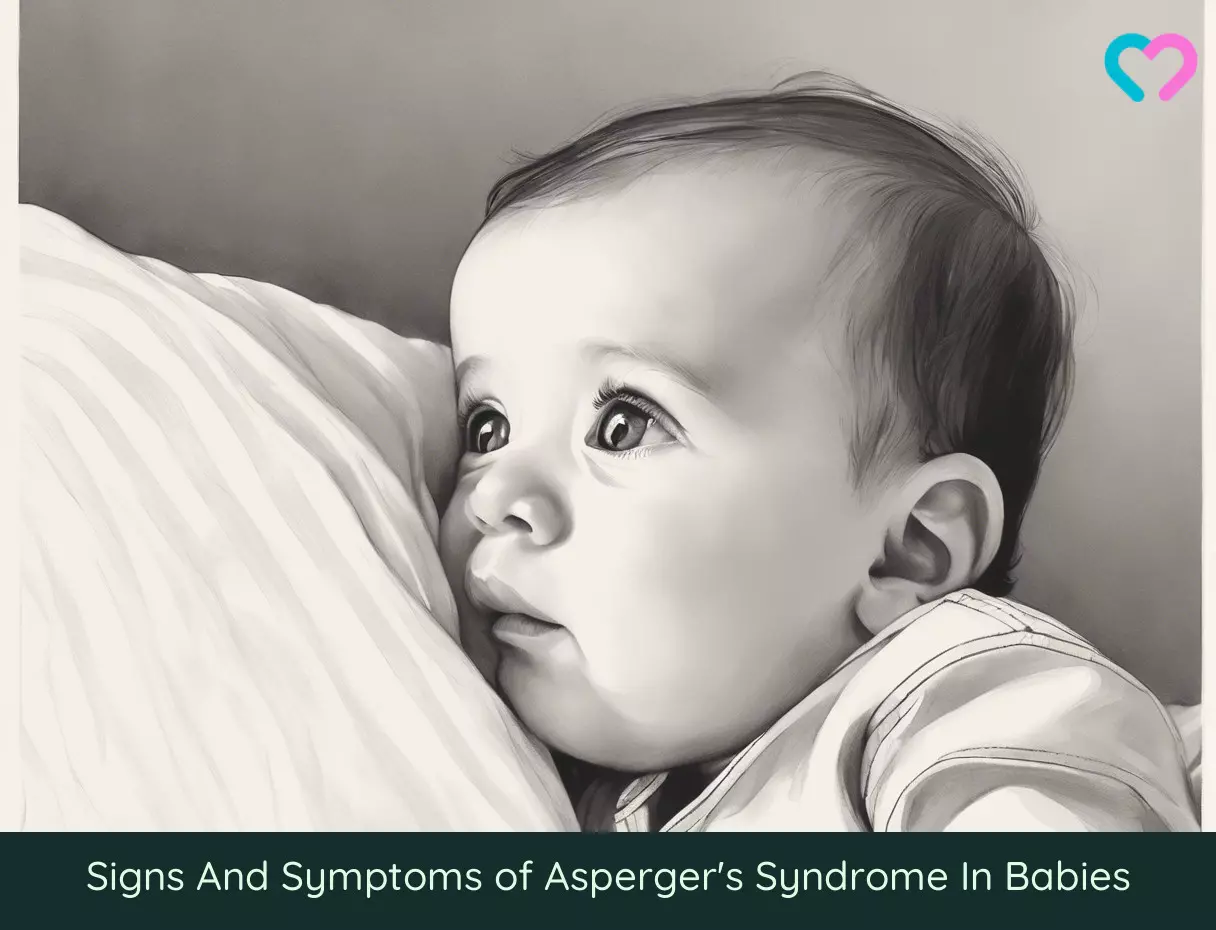
Image: Stable Diffusion/MomJunction Design Team
Gain valuable insights about Asperger’s syndrome in babies and adults from this informative video at it helps you cater to their needs in a better way.
Personal Experience: Source
MomJunction articles include first-hand experiences to provide you with better insights through real-life narratives. Here are the sources of personal accounts referenced in this article.
i. Is Asperger’s hereditary? Another son with Asperger’s?https://ourlifewithaspergers.blogspot.com/2012/03/is-aspergers-hereditary-another-son.html
References
1. Farnaz Faridi and Reza Khosrowabadi, Behavioral, Cognitive and Neural Markers of Asperger Syndrome; U.S. National Library of Medicine
2. When (and How) Should You Tell Kids They Have Asperger’s?; CHILD MIND INSTITUTE
3. EARLY SIGNS OF ASPERGER’S OR AUTISM; autism-help organization
4. Asperger’s Syndrome; The American Academy of Family Physicians
5. Asperger Profiles: Prevalence; The Asperger / Autism Network (AANE)
6. Data and Statistics on Autism Spectrum Disorder; Centers for Disease Control and Prevention
7. David S. Mandell, Maytali M. Novak, and Cynthia D. Zubritsky, Factors Associated With Age of Diagnosis Among Children With Autism Spectrum Disorders; U.S. National Library of Medicine
8. Clinical Testing and Diagnosis for Autism Spectrum Disorder; Centers for Disease Control and Prevention
9. Asperger Syndrome Information Page; National Institute Of Neurological Disorders And Stroke
10. Causes Of Asperger’s Syndrome; Synapse
11. A Guide to the Signs of Autism in Infants; Developmental Pediatrics
12. Diagnosis and differential diagnosis of Asperger syndrome; Cambridge University Press
13. The Difference between Autism and Asperger’s Syndrome; Judson Center
14. Asperger’s Syndrome; Nationwide Children’s Hospital
15. Asperger syndrome; Cleveland clinic
Community Experiences
Join the conversation and become a part of our nurturing community! Share your stories, experiences, and insights to connect with fellow parents.
Read full bio of Dr. Shashidhar A
Read full bio of Dr. Ritika Shah
Read full bio of Rohit Garoo
Read full bio of Apoorva K









